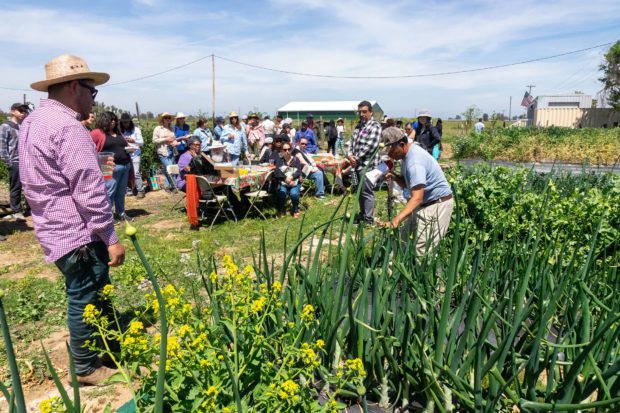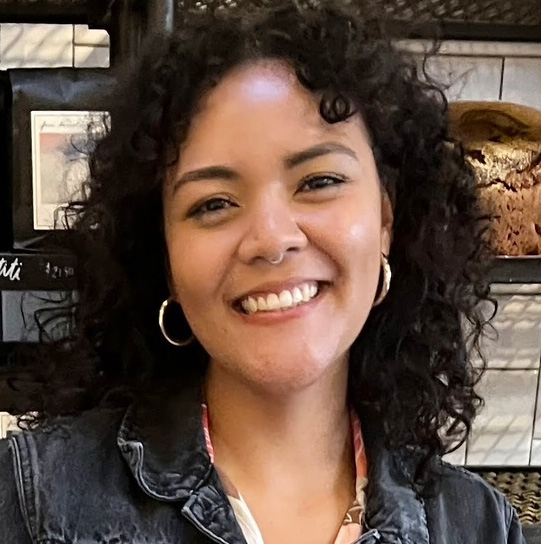
In April, Madera Community College hosted the American Friends Service Committee’s Pan Valley Institute (PVI) national encuentro, or gathering, titled Salt of the Earth, centering California’s Central Valley.
Madera was chosen for this important event because of the strong presence of indigenous immigrant farmworkers from Oaxaca, Mexico, who besides being laborers in the fields are reshaping the cultural landscape of this city of almost 70,000 inhabitants.
In 2020, Madera’s gross value of all farm production was $1.95 billion, ranking No. 10 among California’s 58 counties in California, according to a report produced by Madera County Agricultural Commissioner Rusty Lantsberger.
By comparison, Fresno County, according to the 2020 Fresno County Annual Crop and Livestock Report, is the largest agricultural producer in both California and the nation.
The event brought together numerous farmworkers, activists, community organizers, photographers, artists, learners, educators and people locally and abroad to engage in topics involving land, climate and food justice in this area.
Featuring multiple pláticas, or dialogues, a Theater of the Oppressed workshop, a photo exhibit and a Cultural Kitchen, the gathering focused on cultivating conversation for intergenerational care of the land while revealing how food production and those involved in those processes are all connected and essential.
Although the conference took place in April, these conversations have been taking place within our communities for a long time.
For more than 20 years, PVI has been advocating for underserved and refugee populations in the San Joaquin Valley, providing space for cultural organizing and the exchange of stories.

Rooted in a popular education model and focused on the intentional creation of spaces, PVI organizes and uses resources for the community to connect in order to address issues within the social-political landscape. It is also a participatory research learning center and strives to empower voices to ensure everyone gets a seat at the table.
The weekend was full of growth, learning and exchange of knowledge. One key event, the Round Table on Wheels: Getting to Know California’s Central Valley, took the attendees on a journey through small towns in the periphery of Fresno County. Many of these towns contain large producers of crops and have large farmworker communities.
From Reedley and Sanger to Madera, small local farmers, many of whom practice sustainable farming techniques and grow organic goods, spoke on what it was like to be tending to the land at this time. Organizations such as the Feed the Hunger Fund are working to support these local growers in times of economic need.
Despite the many unique challenges that small farmers face, all shared their love and passion for their work and the land itself. Ramon Flore, a farmer who participated on the tour, highlighted this connection and said that farming feeds his soul.
Another plática, Building a Collective Knowledge: A Creative Approach to Social Changes, facilitated by Ruth Dahlquist-Willard, Estela Galvan, Minerva Mendoza and Myrna Martinez Nateras, examined the process of building collective knowledge and the space for cultural organizing through a group discussion. Many who attended shared their own experiences with cultural organizing and facilitation.

Many dynamic and mindful conversations took place during the event, however, the idea of bringing knowledge already within these communities to the forefront was in these spaces and present throughout.
During lunch breaks, people could hear La Banda San Martin Itunyoso, a local Madera banda of indigenous Triquis young adults from Oaxaca, who are passionate about keeping their cultural traditions alive.
Alongside them, Colectivo Sabor a Mi Tierra, a small business creating traditional food from the Mixtec region of Oaxaca, promoted the culinary wealth of indigenous women and continues to share their cultural story with delicious mole.
From a diverse range of speakers and dialogues, one woven thread brought many topics together and raised the question: How can we come together collectively to build a better world together?
Food and farming play an essential role in our liberation. Through the history of economic and social injustice in the region, these conversations and dialogues, such as the ones featured in the Salt of the Earth encuentro, bring us together to begin to imagine a future where acts of love, from food to stories, cultivate spaces across the land for communities to thrive.

